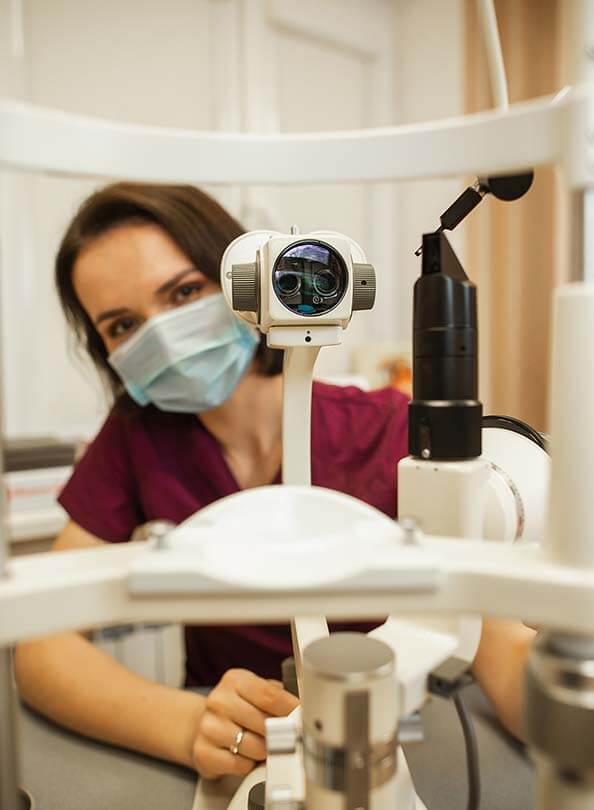Refer a Patient
iScope is currently accepting new patients. A referral from your primary care physician or specialist is required for consultations covered by your provincial plan. If you require rehabilitation services a referral is not required.
Vision therapy is a non-invasive treatment that improves a person’s visual aptitude and capabilities. It is a highly customized program designed to help people get past visible obstacles and enhance their overall visual performance. Vision therapy frequently employs a variety of eye exercises and activities to strengthen the optical system and improve its ability to process visual data. This type of therapy may be helpful for people who have a variety of visual disorders, such as lazy eyes, crossed eyes, and other binocular vision abnormalities, as well as for people who have difficulty learning and reading.
Vision therapy North Vancouver is often administered by an optometrist or vision therapist and can be done in a clinic or at home with specialist equipment. The duration of the therapy may vary depending on the patient and the specific visual disorders being addressed.

Exercises and activities are used in vision therapy to enhance the performance and function of the optical system. Three essential ideas concerning visual treatment are as follows:
Vision therapy is a type of therapy that focuses on improving and enhancing a person’s visual ability. Regarding learning difficulties, vision therapy can be very beneficial in treating reading, writing, and comprehension issues. These are some essential aspects to remember about visual therapy for learning disabilities:
Visual therapy, in general, can be an effective technique to address visual processing difficulties associated with learning disorders. It is a tailored method that can help enhance academic achievement and overall quality of life.
An optometrist is a healthcare specialist with a focus on eye and vision care. They are adept at detecting various visual defects in the eyes and recommending corrective measures such as spectacles or contact lenses. Additionally, optometrists in North Vancouver provide pre- and post-operative care for eye procedures, diagnose and treat eye diseases and conditions, and offer advice on maintaining outstanding eye health.
Optometrists’ primary responsibilities and duties include the following:
If you have specific questions or would like to learn more about optometry, please do not hesitate to inquire!
Ophthalmologists and optometrists are eye care professionals, albeit with varying levels of education and experience. Optometrists provide primary eye care, diagnose common eye diseases, and write prescriptions for eyeglasses and contact lenses. Ophthalmologists, on the other hand, are specialists in eye and vision care who can perform procedures and manage complex eye conditions.
Iscope North Vancouver is located in suite 301 at 1111 Lonsdale Ave.
iScope is currently accepting new patients. A referral from your primary care physician or specialist is required for consultations covered by your provincial plan. If you require rehabilitation services a referral is not required.
Suite 830 – 475 West Georgia St Vancouver, BC V6B 4M9
P: 1-888-550-5508
F: 604-900-7676
Coming Soon Suite 301 – 1111 Lonsdale Ave North Vancouver, BC V7M 2H4
P: 1-888-550-5508
F: 604-900-7676
Suite 301 – 3185 Willingdon Green Burnaby, BC V5G 4P3
P: 1-888-550-5508
F: 604-900-7676
Opening soon at 3670 63 Ave NE , Suite 260
Calgary, AB
P: 1-888-550-5508
Suite 500 – 89 Queensway West Mississauga, ON L5B 2V2
P: 1-888-550-5508
F: 416-900-7006
Coming Soon Virtual Clinic Now Open
P: 1-888-550-5508
© Copyright 2023 Iscope Concussion and Pain Clinics. All Rights Reserved